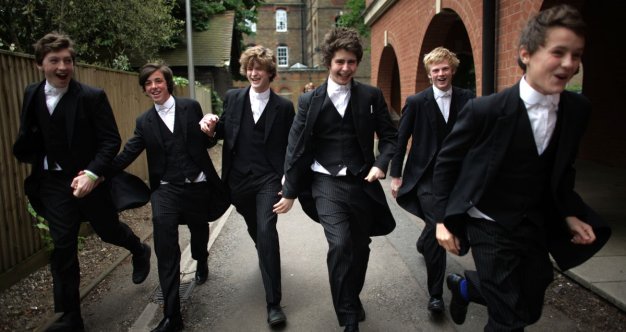There’s a major new cancer-prevention effort taking place and the target is young boys under the age of twelve. The National Health System in Britain, or NHS, is now mandating that schools offer vaccination against the Human Papilloma Virus (HPV) for all boys. The vaccinations are to be given at the age of twelve and the goal is to keep boys from developing head and neck cancers, anal cancer, and penile cancer– all of which are linked to HPV.
If you are an American and you’ve had sex, there’s about an 80 percent chance that you have HPV. In Britain, one in three people currently have HPV, and 90 percent of people will come into contact with HPV in their lives.
Read MorePublic Health England (PHE), a British executive governmental health agency, hopes that the move will prevent up to 100,000 cancers across the country by the year 2058, which will mark the 50th anniversary of the initial launch of the HPV vaccine launch for girls.
HPV is a sexually transmitted virus that is responsible for most cervical cancers in women. But it’s also linked to five percent of cancers, including penile, anal and genital cancers, and some cancers of the head and neck. According to the National Institute of Health, high-risk HPV infections are responsible for three percent of all cancers in women, and two percent of all cancers in men.
RELATED: Controversial HPV Vaccine Shown to be Highly Effective in Wiping Out Cervical Cancer
In the United States, the vaccine is offered to both boys and girls, but it isn’t mandatory. That’s because a lot of people are resistant to the idea of vaccinating their children. “There is a lot of stigma around it because parents are giving it to children, they are concerned about things like enabling kids sexual promiscuity,” says Cornell’s Dr. Yeo.
But the vaccine has been tested time and again, and has proven to be a great preventative measure.
“The vaccine has been out for a long time. Multiple studies, three or four clinical trials that were 20,000 to 30,000 people have shown safety, and not just lower cancer rates, lower virus rates (which means lower rates of possibility turning into cancer).” Dr. Yeo Continues. “I along with many of my medical colleagues have a hard time understanding why you wouldn't give it to a child.”
The guidelines suggest giving the vaccine at ages 11 or 12 for boys and girls. The vaccine protects against four strains of HPV, so people who have been exposed to one strain may still benefit from the vaccine, according to Dr. Yeo.
More than eighty percent of women aged 15-21 in Britain have been vaccinated for HPV.
By vaccinating boys, the move will both protect their sexual partners from catching the disease, and reduce circulation of the virus as a whole.
The decision in the United Kingdom comes after a long campaign to vaccinate boys at age 12 as well as girls, and two other countries in the UK, Scotland and Wales, have already announced adopting similar programs.
Dr. Jessica Geiger, medical oncologist at Cleveland Clinic Cancer Center, discusses HPV and cancer risk in men
“The strains of HPV that cause cervical cancer are the same strains of HPV that cause throat cancer,” says Dr. Jessica Geiger, a medical oncologist at Cleveland Clinic Cancer Center. “There average patient with HPV-related throat cancer tends to be males in their 40s or 50s, who were never a smoker or just a very light tobacco user.”
The majority of people with HPV will not get cancer, but “for about 6 to 7 percent of the population, the virus remains dormant in our body, and can ultimately cause changes that form cancer. We recommend strongly that children are vaccinated against HPV before they are sexually active,” Dr. Geiger says.
The consensus? Talk to your doctor about the HPV vaccine. It may save your life.
Dr. Jessica Geiger, medical oncologist at Cleveland Clinic Cancer Center, talks about HPV and cancer risk
Learn more about SurvivorNet's rigorous medical review process.


